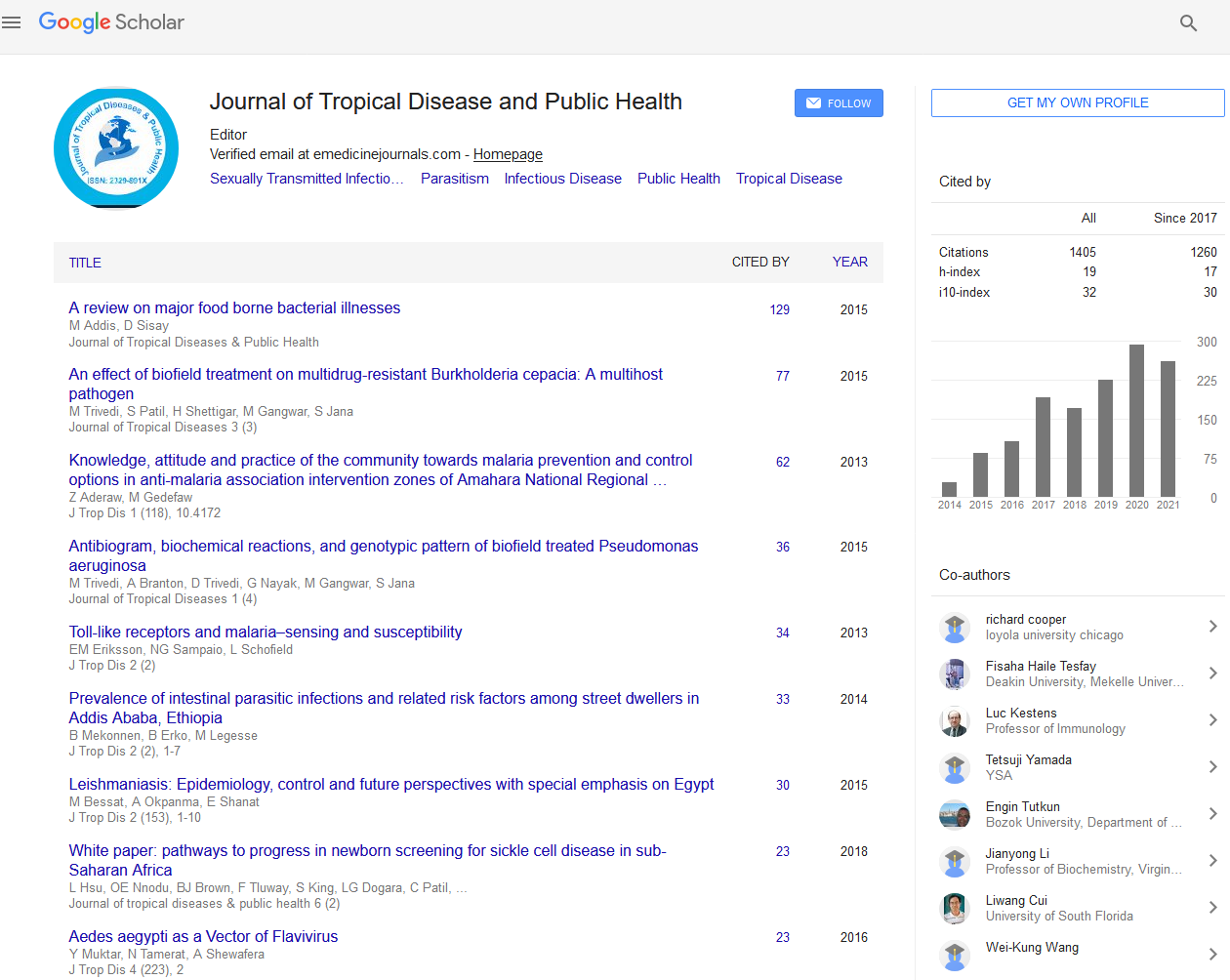Indexed In
- Open J Gate
- Academic Keys
- ResearchBible
- China National Knowledge Infrastructure (CNKI)
- Centre for Agriculture and Biosciences International (CABI)
- RefSeek
- Hamdard University
- EBSCO A-Z
- OCLC- WorldCat
- CABI full text
- Publons
- Geneva Foundation for Medical Education and Research
- Google Scholar
Useful Links
Share This Page
Journal Flyer

Open Access Journals
- Agri and Aquaculture
- Biochemistry
- Bioinformatics & Systems Biology
- Business & Management
- Chemistry
- Clinical Sciences
- Engineering
- Food & Nutrition
- General Science
- Genetics & Molecular Biology
- Immunology & Microbiology
- Medical Sciences
- Neuroscience & Psychology
- Nursing & Health Care
- Pharmaceutical Sciences
Abstract
Zika Virus Disease Epidemics
Doudou Diop, Dirga Sakti Rambe and Melvin Sanicas
Background: Zika is a mosquito-borne viral disease that produces an illness clinically similar to dengue fever and many other tropical infectious diseases. Currently, there is no vaccine or specific antiviral treatment for Zika virus infection. This study aimed to review the epidemiology of Zika virus infection and to describe the recent epidemics.
Methods: We did a review of articles published up to December 2015 on Zika virus diseases epidemics.
Results and discussion: Outbreaks of Zika have occurred not only in Africa, Southeast Asia, the Pacific Islands but also in South and Central America. Several travel-related Zika virus infections have been reported in countries in Europe and North America. With the increased reporting of Zika virus transmission in the Americas, countries should create and maintain the capacity to identify and confirm cases of Zika virus infection and effective strategies to reduce the mosquitoes that transmit the disease should be established. In a globalized world, infectious diseases can move faster and easier when vectors such as Aedes Egypti mosquito has become naturalized in several parts of the world. Although the natural transmission cycle of zika virus involves mosquitoes, especially Aedes spp, perinatal transmission, potential risk for transfusion-transmitted and sexually transmitted zika virus infections has also been demonstrated.
Conclusion: Zika virus infection has probably been underdiagnosed and underreported in disease-endemic settings. Laboratory capacity to confirm suspected zika virus infections should be strengthened to differentiate it from other arboviral dengue-like infections. There is also a need for a vaccine and antiviral therapy to fight this disease.


